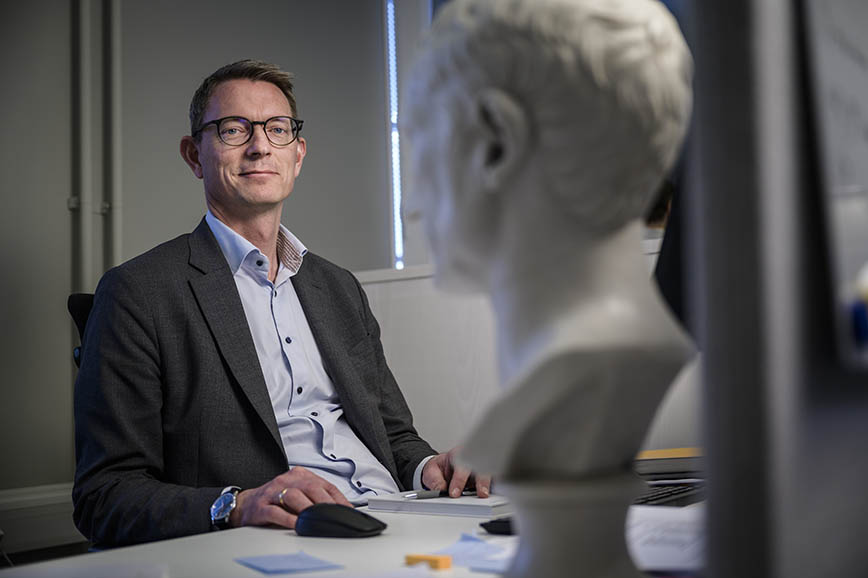New manager reviewed by Caesar

After just over a month in his twin roles, Fredrik Oldsjö already seems to feel at home at KTH. He is the Deputy University Director and Head of the University Management Office within University Administration.
“It feels like great fun so far. Many delightful and knowledgeable people at a university where plenty is going on.”
That was one of the things that attracted him when he applied for the job at KTH.
“A leading university within its field, with a faculty, a close connection with society, and a key role in societal development - not least when it comes to sustainable development.”
Oldsjö’s background is as a teacher and researcher in Latin. He wrote his thesis on Caesar’s use of language and has a bust of Caesar on his desk on floor 6 at Brinellvägen.
“His critical eye is good for working morale.”
There are naturally no similarities with the 50 BCE dictator.
“I am more of a diplomat by nature,” he claims.
A skill that can be assumed to have come in handy in his role as Coordination Officer for Stockholm Trio that Oldsjö has had since the start of the university alliance three years ago.
“Collaboration within and between the universities and external parties is necessary to be a leading university and able to make a crucial contribution to societal development.”
With a background that includes Area Chief Administrator at Stockholm University, he is used to working close to core activities at a university and seeing the different needs this involves. This is something he hopes to be able to contribute to at KTH. His previous experience as Director of the Centre for the Advancement of University Teaching at Stockholm University and Deputy President of the Stockholm Academy of Dramatic Arts, for example, are other strings to his bow that should stand him in good stead.
“Higher education is an incredibly exciting sector that has doubled in size over the past 30 years. One tendency that I seem to have noticed is ever increasing expectations on universities to contribute both to societal development and transition, which means both greater demands on both change and even more collaboration and cooperation,” he says.
Just about a week before Oldsjö started work at KTH, Russia invaded Ukraine. He had to immediately head a KTH working group for Ukraine with the aim of coordinating issues concerning Ukraine and to find solutions to help students and researchers who had fled from the war.
How does he view the change to a joint and coordinated support services?
“It is exciting to join an organisation where they have had the courage to point out one direction for long-term change. I am delighted to be part of this development.”
Text: Jill Klackenberg

